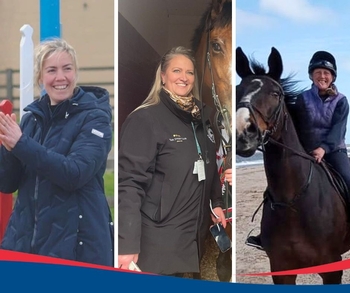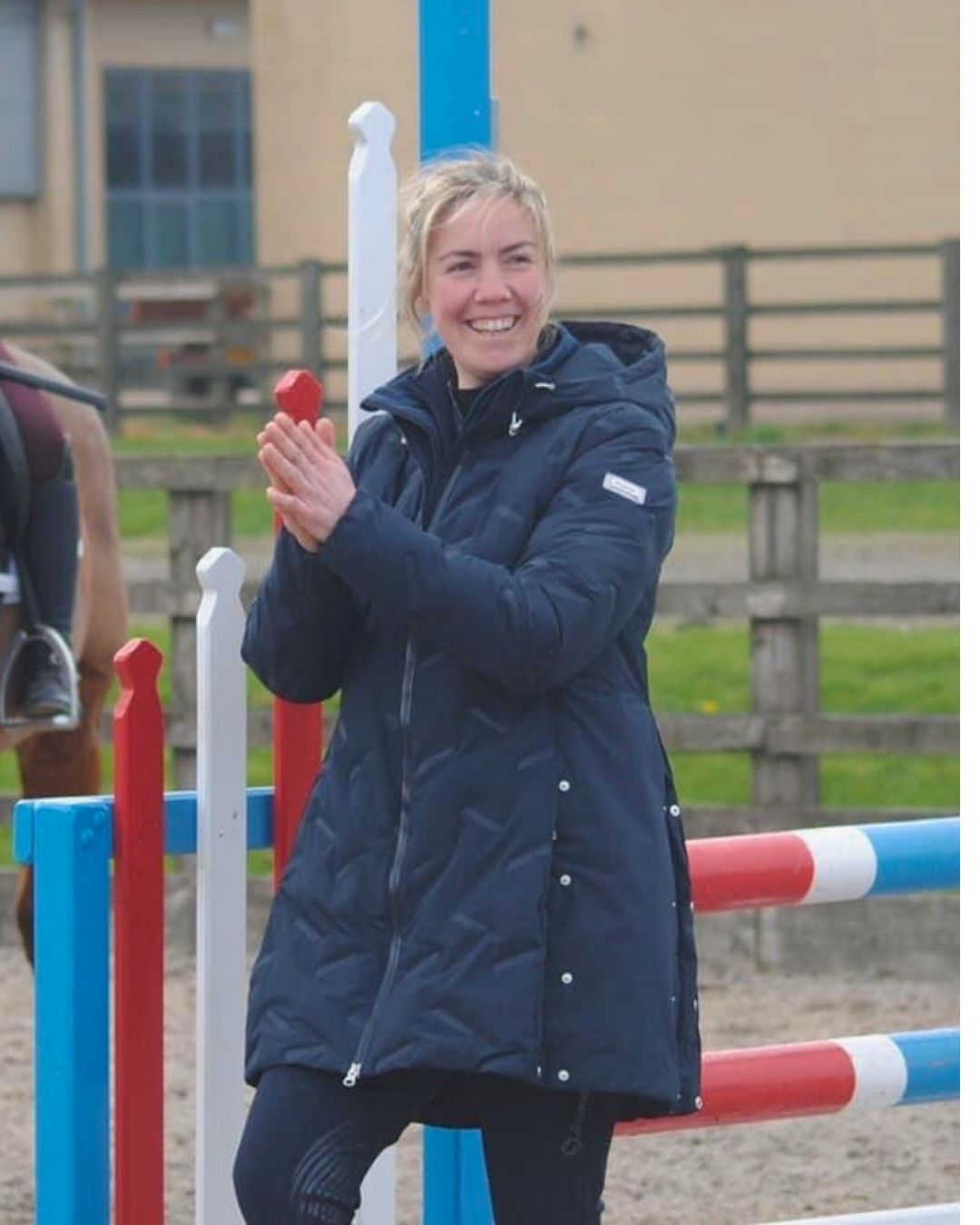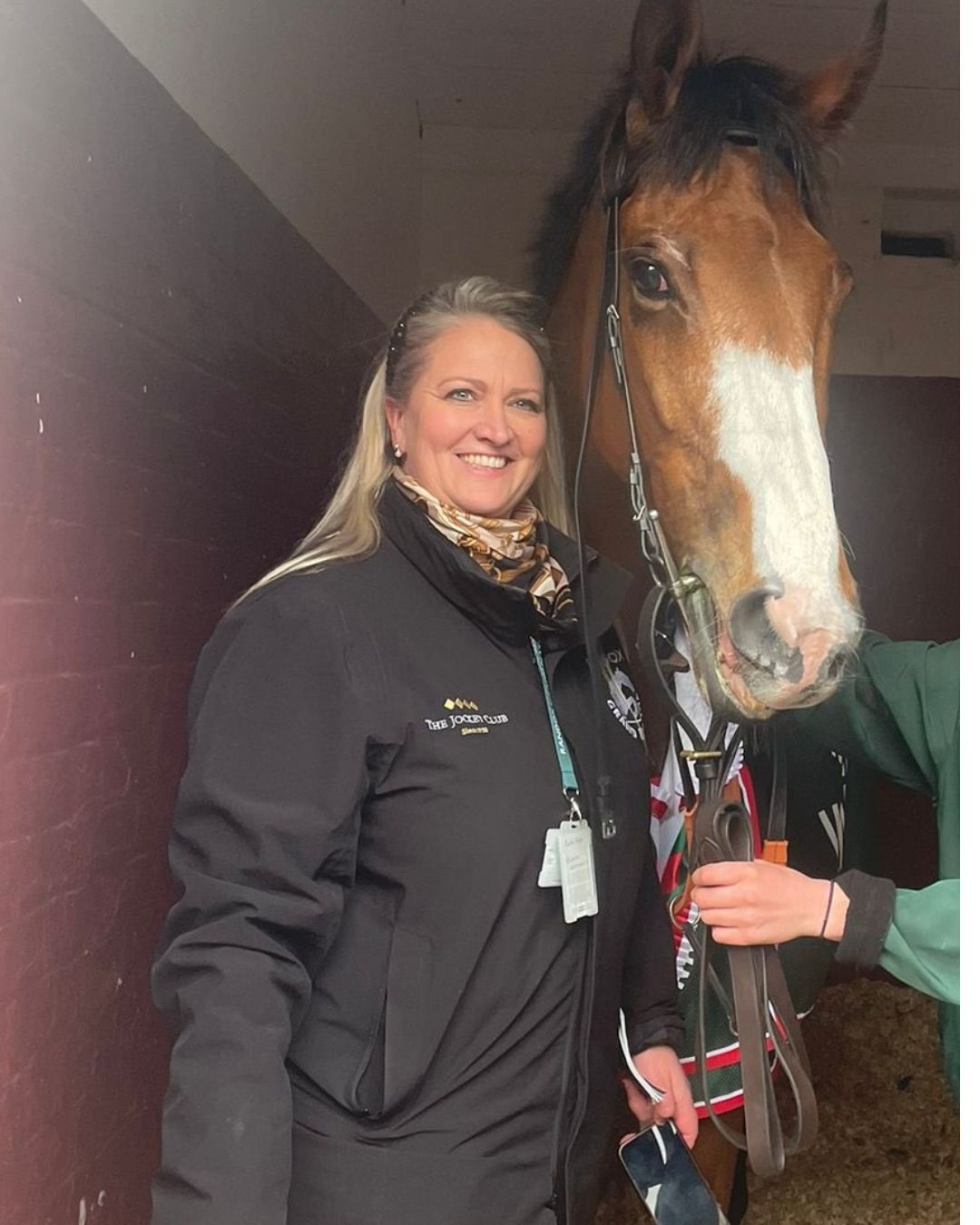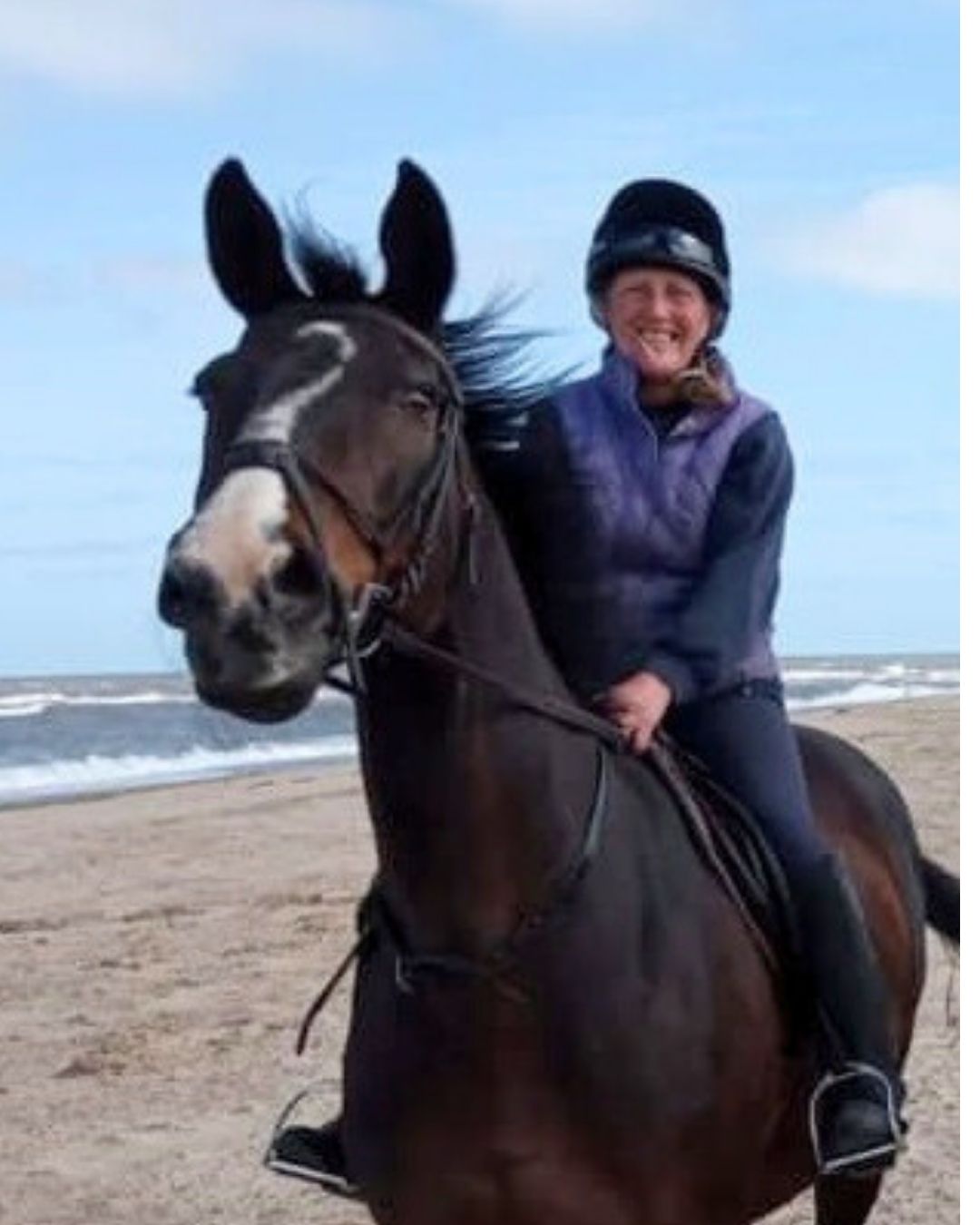Celebrating International Women's Day
Friday 08 March 2024

On 8th March every year, International Women's Day celebrates the social, economic, cultural, and political achievements of women around the world. It is a day to both recognise, and be inspired by, the achievements of the women who have made, and continue to make, a difference.
This year’s theme is ‘Inspire Inclusion’ and whilst equestrian sports are unique in that they are the only major sport where women and men compete against each other on equal terms, it wasn’t always the way. Women were first permitted to compete at the Olympics in Dressage in 1952, followed by Showjumping in 1956 and finally Eventing in 1964.
To celebrate International Women’s Day 2024, we spoke to some of the incredible women involved in British Showjumping and delve into what it is like to be a female within our sport. From juggling family life and studying, to continuing to strive for equality in the industry, these ladies are crucial to allowing our sport to run and provide inspiration to everyone, no matter your gender.
Nicola McLeish
 Nicola McLeish is a Level 4 British Showjumping Coach, Coach Educator and Assessor, as well as an assistant coach on the Gold Development programme and Haddon Training’s AESE programme. Most recently, she has completed her master’s degree in Professional Sports Coaching in October 2023, which she considers one of greatest professional achievements to date: “At the time I was juggling my studies around running a business, raising my first baby, and being pregnant with another!”
Nicola McLeish is a Level 4 British Showjumping Coach, Coach Educator and Assessor, as well as an assistant coach on the Gold Development programme and Haddon Training’s AESE programme. Most recently, she has completed her master’s degree in Professional Sports Coaching in October 2023, which she considers one of greatest professional achievements to date: “At the time I was juggling my studies around running a business, raising my first baby, and being pregnant with another!”
Growing up in the 90’s, Nicola recalls noticing that the gender divide in sport had lessened compared to previous decades, although many senior positions were still dominated by men: “One thing I do remember from my teen years is being really interested in Karen Brady, who took on a senior position at Birmingham FC in the 90’s, and by the early 2000’s was in a position of power in a world dominated by men. I found that really inspiring.”
Having a day which highlights the important contributions that women make to society is important to Nicola and feels lucky to be able to work within a sport that many must limit to a hobby. “Sport is a passion for a lot of people, I feel lucky that I get to work in an area that I’m passionate about every day. There is another layer for me too, as in sport most coaches are male, and therefore I am one of the privileged women who can earn my living through sports coaching.”
Whilst men and women compete on equal terms in equestrian sports, Nicola acknowledged how important it is that we continue to ‘inspire inclusion’ within every aspect of the sport: “This was the focus for my master’s degree research, because I was keen to understand how female coaches progress in a sex-integrated sport. My research found that even though the opportunities for women are seemingly the same as those open for men, there are still structural barriers which mean it is harder for females to progress in sport. The academic community has found my research interesting, and my research supervisors are now looking to publish the results in an academic journal.”
One of these structural barriers Nicola noticed is the historical understanding of a ‘female’ role: “I have at times experienced the expectation to take on a mothering or caring role because I am female,” commented Nicola. “This is certainly something, when I speak to my male colleagues, they have not experienced. As my career as a coach has progressed, I have become more confident in being able to express what my role is in any given situation, and to confidently move away from the expectations that have been placed on me in the past because of my gender.”
Nicola is continually inspired by others within the sport, including Di Lampard, Corinne Bracken and Sophie Wells, all whom have had fantastic careers, but have also personally supported Nicola in her own progression, which she hopes she can do the same for others: “I hope I show my younger colleagues that despite the challenges thrown up because of our gender, you can still progress and have a fulfilling career in equestrian coaching. I also hope that my own actions can contribute to building a strong culture of women supporting women in our sport.”
When asked what advice she would give to women thinking about pursuing a career in sport, Nicola replied: “If it is your passion, go for it! Everyday barriers to women’s progression are being removed and we are moving to a more level playing field. Don’t let your gender stop you from following your dreams.
“It takes a lot of hard work, so you must be willing to put the hours in, but the reward of getting to work in an area you are passionate about, makes it all worth it! Try to build your network by communicating with and supporting others around you. Also, don’t be afraid to ask people for help and advice!”
Carly Sage
 Carly Sage is the Manager at Aintree International Equestrian Centre, who host an array of British Showjumping competitions including the National Amateur and Veteran Championships, Winter Classic and Pony Premier shows as well as the world renowned Grand National.
Carly Sage is the Manager at Aintree International Equestrian Centre, who host an array of British Showjumping competitions including the National Amateur and Veteran Championships, Winter Classic and Pony Premier shows as well as the world renowned Grand National.
Working in a team to ensure the smooth running of their events is a huge element of Carly’s role, and something that she considers one of the highlights of her career: “I have been a part of the team at Aintree for the past 15 years. The Equestrian team is predominantly female, and I am always proud of the events we hold and the hard work that we put into them.
“The Grand National is a major highlight every year but I get the same kick when we put on big shows like the Amateur and Veteran Championships and seeing the same people return year after year enjoying themselves. Aintree has won many awards over the years and it’s important to me that we never stop trying to improve.”
Growing up, Carly was inspired by her mum, who navigated life with horses on the family farm as well as fostering over 60 children, and it is her mum whom Carly credits for the work ethic she employs in all aspects of life: “At the time, it just seemed so normal to share your childhood with others, but it amazes me how my mum coped with the day-to-day life. Now I’m older, I am so grateful for what she did for us and so many other children. She never moaned, just worked hard, made time for everyone, and treated us all the same. She deserves a medal!”
Throughout her career, Carly found working on racing yards tough and, despite the many females that worked in the industry, felt there was always an element of male dominance. Despite men and women competing on equal term in all equestrian disciplines, Carly believes there is still a way to go to ‘inspire inclusion’: “When I look back and remember showjumping in the 80/90’s, I could name a long list of male showjumpers, but not many females,” commented Carly. “That has changed a lot in the past 10-15 years and nowadays I think woman are treated with a lot more respect than they used to be, especially in racing - the number of lady jockeys in the changing rooms has expanded! There are some great lady riders out there and it would be great to continue to give them a centre stage to aim for.”
When asked why she felt it was important we continue to celebrate International Women’s Day, Carly commented: “I think we should celebrate what we have achieved – look how far we have come, especially in the last 50 years!”
Carly believes working in an equestrian sport has given her a platform to instil confidence & learn invaluable skills and hopes she can help continue to create a positive representation for future generations. “I am very fortunate to be working in an industry that I love and there is so much more than just the riding element to our sport – although having more time to ride would be a bonus! I would hope that my vision to always try your best and never stop improving is a good influence on my colleagues.”
Sue Peasley
 Sue Peasley is a Level 4 Course Designer, who has been doing this role for over 40 years as well as being judge for the past 25 years. Sue is also a Regional Mentor for Judges and Course Designers and enjoys watching young or novice riders and horses developing and progressing to achieve their full potential.
Sue Peasley is a Level 4 Course Designer, who has been doing this role for over 40 years as well as being judge for the past 25 years. Sue is also a Regional Mentor for Judges and Course Designers and enjoys watching young or novice riders and horses developing and progressing to achieve their full potential.
When Sue started working with British Showjumping, it was a novelty to see young girls wanting to become course designers, and the expectation was that they would probably not stick to it:
“50 years ago, most sport organisations were dominated by males and many in the equestrian sector seemed to be ex-army officers,” commented Sue. “It was a time when it was quite difficult for everyone to be treated as equals and women had to prove themselves. In my first job on a farm, I was told in no uncertain terms that if I expected to be paid the same money as the men, I would be expected to do exactly same work.”
Sue took on this challenge and now her biggest achievement is knowing she has been involved in the sport her whole life: “I still enjoy what I am doing despite the fact I sometimes worry as to whether I have done the best job I can do for a show to be successful.”
Taking inspiration from her grandmother, a woman who Sue says believed that anything a man could do she could do better: “Like many of her generation, my grandmother raised a family alone, had a successful career, was treasurer of a Pony Club for 40 years and held many important roles in the local government which was a male dominated area.”
When talking about the importance of International Women’s Day, Sue commented: “I think it is good to celebrate and help women to believe that they can succeed in areas which have been traditionally male dominated.”
Throughout her career, Sue doesn’t feel that she has faced many barriers within the sport because of her gender and believes the sport to be incredibly inclusive: “Whilst Showjumping is often seen to be dominated by females, certainly at the younger and less professional end of the spectrum, we need to help more people understand that it is a very gender inclusive sport.
“I have always believed that men and women have different strengths but are both capable of doing the same jobs. I don’t feel that gender is a great significance, but it is important to have female role models for aspiring officials and riders,” continued Sue, who’s daughter is also a course designer.
Reflecting on what advice she would give to those considering a career within sport, Sue said: “I would advise anyone to follow their dreams and with hard work anything can be achieved. I hope that in my role I can help boost other women’s confidence and encourage them to give things a go.”

.jpg)
.jpg)
.jpg)
.jpg)
14kvaj7pl3106.jpg)
